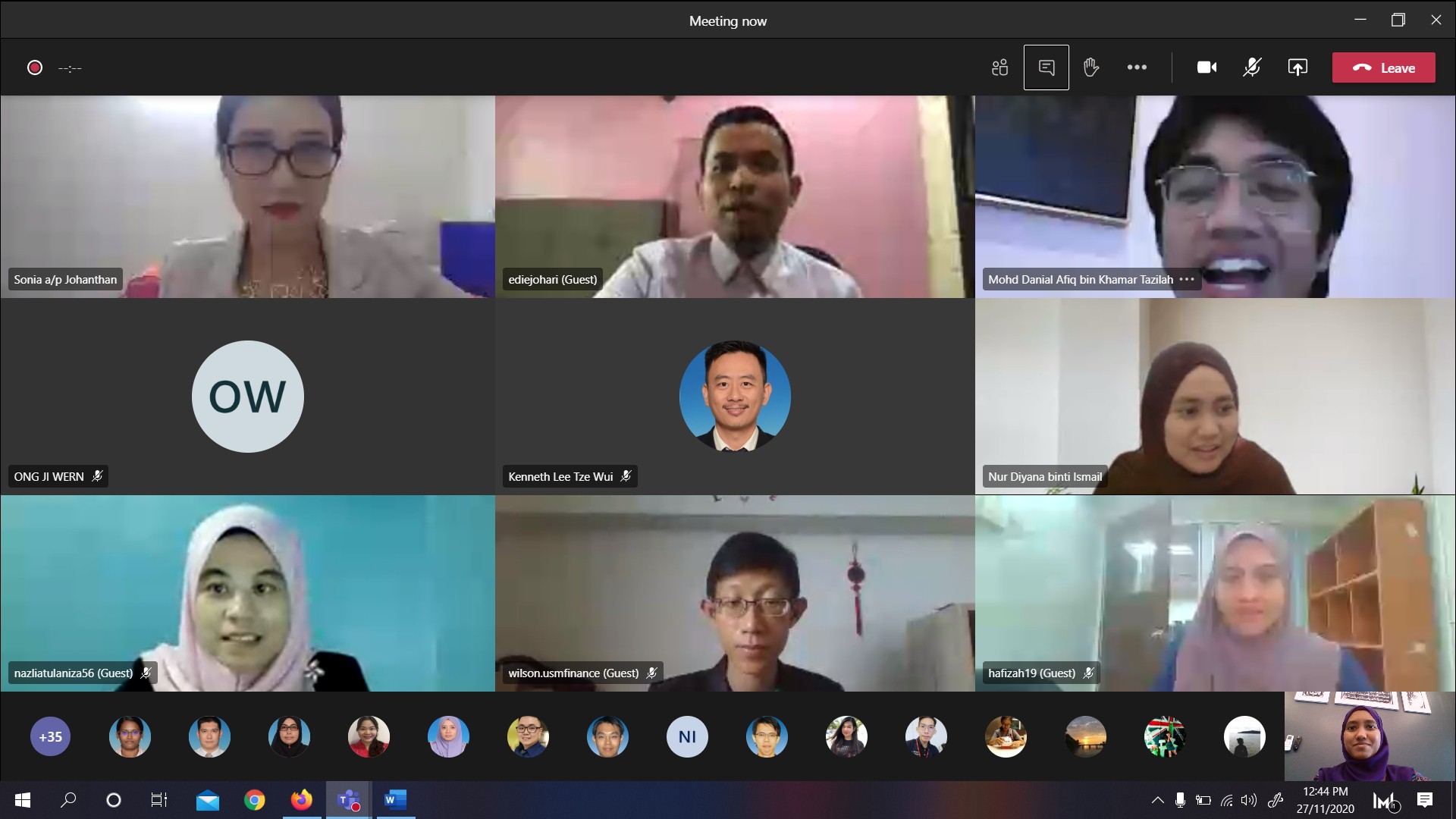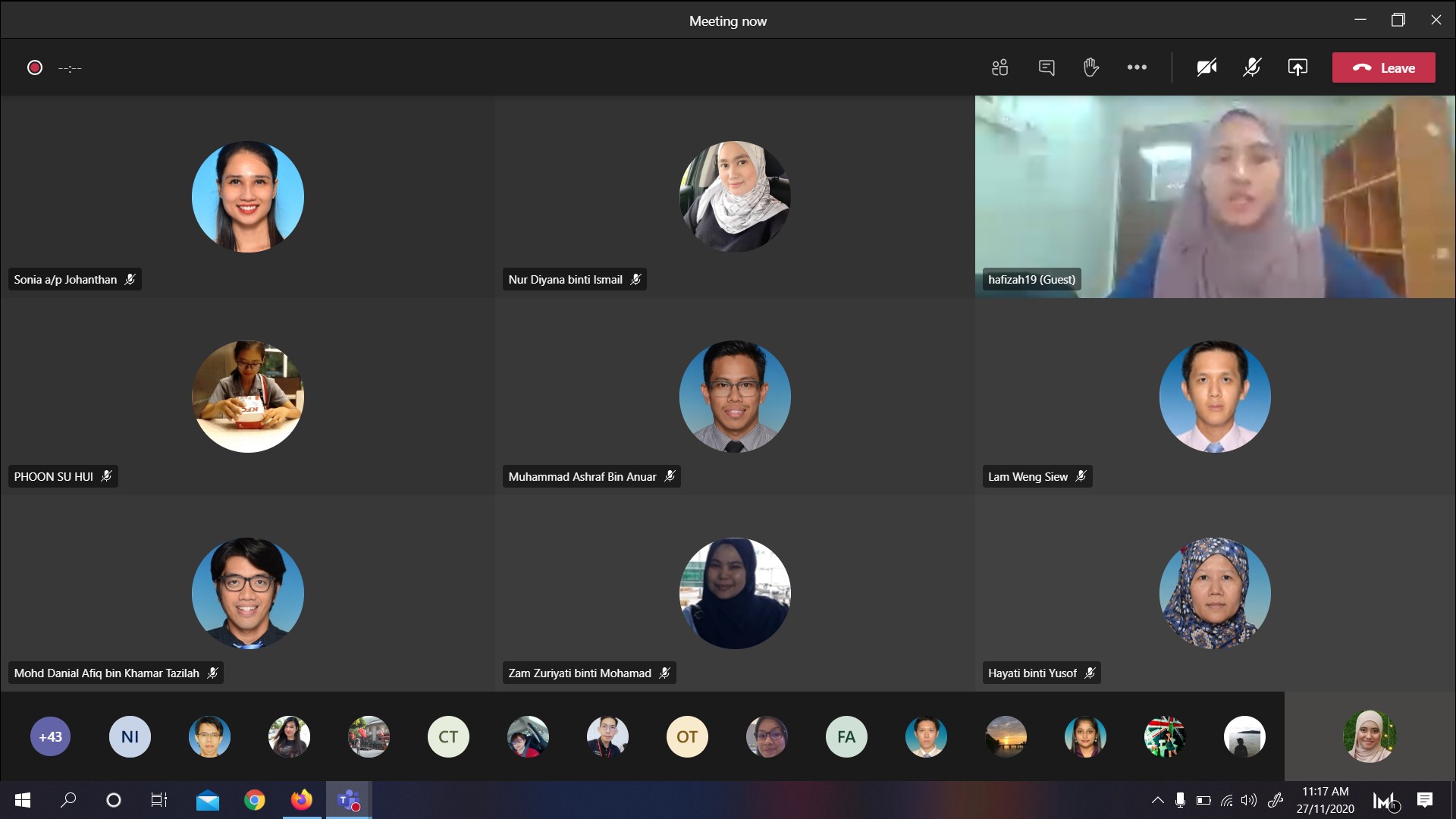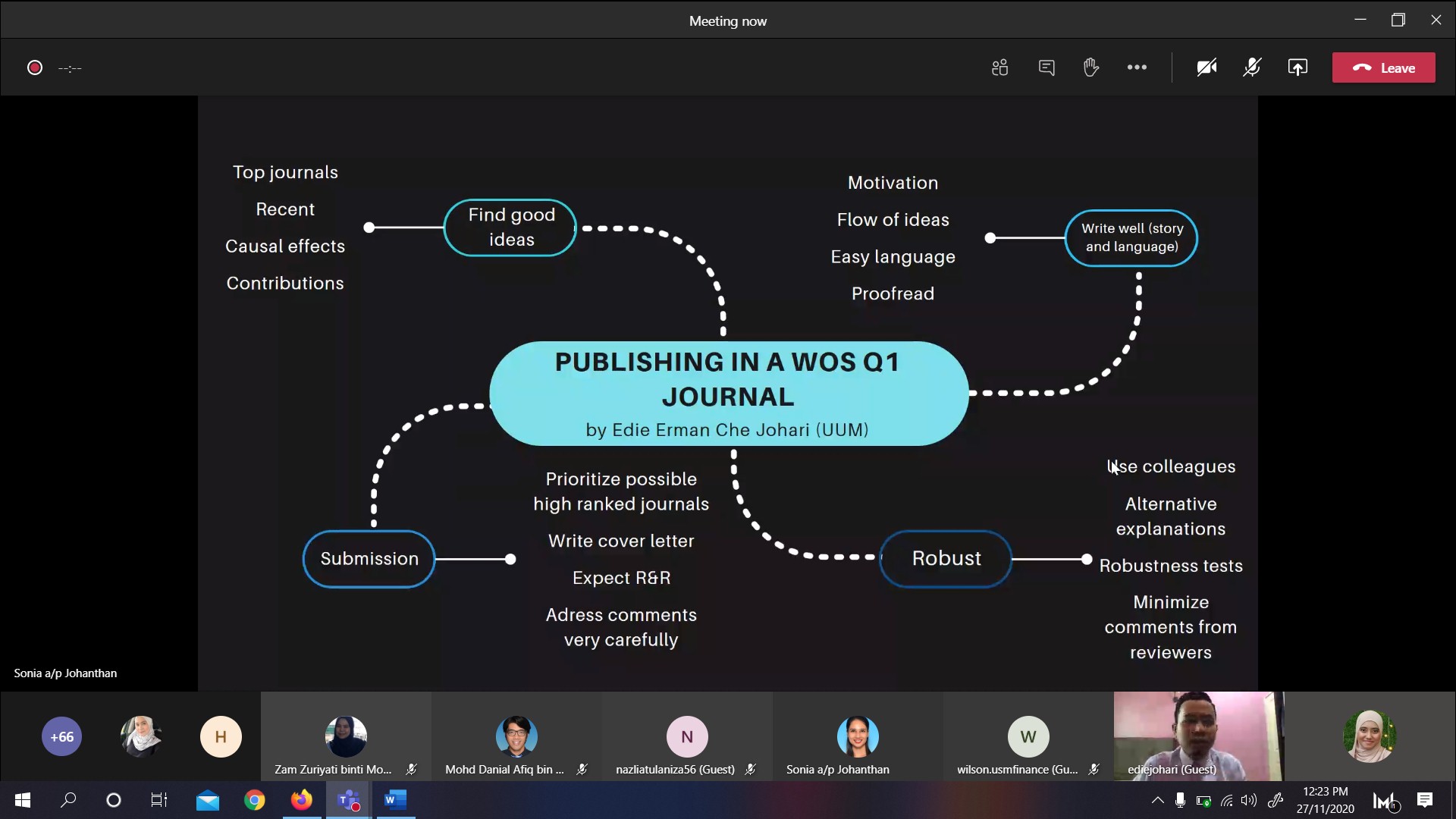
Insights on research and publication for young researchers
The Centre for Accounting, Banking and Finance (CABF) parked under the Faculty of Business and Finance (FBF) organised a webinar featuring a sharing session on the topic “Research and Publication for Young Academicians” on 27 November 2020 via Microsoft Teams.
The webinar was delivered by senior lecturers from the School of Economics, Finance and Banking of the Universiti Utara Malaysia (UUM), namely Dr Ooi Chai Aun, Dr Nazliatul Aniza Abdul Aziz, Dr Edie Erman Che Johari and Dr Nur Hafizah Mohammad Ismail.
The webinar was delivered in two parts. The first part was presented by Dr Nur Hafizah and Dr Nazliatul Aniza on local grant applications such as the Fundamental Research Grant Scheme (FRGS). Meanwhile, Dr Ooi and Dr Edie presented the second part of the session focusing on the international grant applications and journal publications.
Dr Nur Hafizah started the session by highlighting the practicality of research grants in data collection, attending international conferences, publications and hiring of research assistants in alleviating both research costs and workload. Additionally, as some research grants are multi-disciplinary, networks and collaborations are established with researchers from other universities and industries. Such collaborations also help to attract international students to the university.
She also gave some tips on how to write a grant proposal. She shared, “As the United Nation’s Sustainable Development Goals (SDG) is currently an important research topic, it would be great if your research areas could focus on the 17 SDGs and how they could benefit the country and the people.” She said the reviewers of grant proposal will look into the applicants’ executive summary including their problem statement, objective, methodology, expected outcome and significant outcome prior to the approval process. She added, “The title of your research is also an important aspect which should not be overlooked and should be constructed carefully to make known to the reviewer the objective of your study.”
Dr Nazliatul Aniza spoke next and gave additional guidance on the process of writing a research proposal. She emphasised on the importance of forming a well-balanced team which should include professors and senior lecturers who have vast experience in the area. Time management is also an important factor for writing grant proposals. She advised that the proposal should be prepared earlier than the stipulated deadline in order to have more time for amendments or reviews from colleagues. Dr Nazliatul Aniza indicated that the executive summary should give a convincing explanation as to why the study needs to be done and should also provide a clear outline of the methodology. Since the FRGS and KPT focus on Malaysia, she suggested that the problem statement should indicate the policies and laws relating to the study and the current efforts by the government would be an added advantage.
The second session was then presented by Dr Ooi who outlined the difference between the local and international grant. For international grants, the applicant needs to think beyond Malaysia to enlarge the scope of his study to the international arena. Dr Ooi reminded that some grants, like the Sumitomo grant, are regional based so the applicant would need to adjust the scope of study to fit the scope of the grant. To improve the application success rate, he recommended studying the past winners’ project titles to be prepared to deviate from one’s area of expertise in order to fulfil the preferences of the panel and to build networks. For building networks and collaborations, Dr Ooi proposed to go for physical conferences, where possible, instead of virtual conferences where it is more difficult to establish communications. Finally, he emphasised that international grants tend to focus on practical contributions from findings. As such, the successful applicant is encouraged to share their findings to the related community instead of focusing solely on publications.
Last but not the least, Dr Edie shared some tips from his experience in publishing in a WOS Q1 Journal. To source for ideas, he advised reading top-ranking journals for current topics. When it comes to writing, simple language is preferred and he suggested to engage a proofreader who is familiar with the area of study. Additionally, he stressed the importance of a study’s contribution to the body of literature. To minimise reviewer comments, robustness check should be performed. When submitting articles, he stated that the paper should align with the journal’s objectives. After submission, the author should expect reviews and should reply to each of the reviewers’ comments. He advised that typically it takes one year from submission to reviewer when the paper is finally published. Admittedly, publication does involve an element of luck to a certain extent, depending on the type of reviewers assigned. Notwithstanding, it is the quality of the paper that is most important.
Many participants expressed their gratitude for the sharing session and had found it useful and insightful. The session ended with group photography.



Participants and speakers during the sharing sessions
© 2021 UNIVERSITI TUNKU ABDUL RAHMAN DU012(A).
Wholly owned by UTAR Education Foundation Co. No. 578227-M LEGAL STATEMENT TERM OF USAGE PRIVACY NOTICE